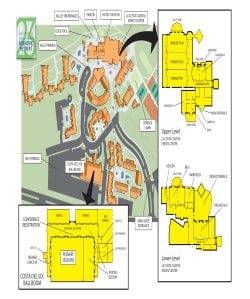In October 2017, the Prostate Cancer Foundation held its 24th Annual Scientific Retreat. Like no other gathering in the industry, the retreat brings together the best and the brightest minds working on prostate cancer to share research, report on new results for patients, and participate in unprecedented collaborations. This year, over 550 scientists were in attendance.
Here’s a summary of the top six topics that were reported on, with more to come.
- Dr. David Solit from Memorial Sloan Kettering Cancer Center has been working on categorizing all of the genetic mutations that drive the development and progression of cancer. This taxonomy will someday be used to facilitate the creation of more targeted therapies.
What’s interesting for patients? The program, MSK-IMPACT, has sequenced tumors from over 10,000 patients, resulting in successful treatment in precision medicine clinical trials and improved understanding of cancer biology.
- Immunotherapy has the potential to eliminate cancer and cure some patients, but, to date, it has limited success in prostate cancer. Dr. Ravi Madan at the National Cancer Institute is exploring combination therapies which may improve the efficacy of immunotherapy for prostate cancer.
What’s interesting for patients? Early results from an NCI clinical trial testing the prostate cancer vaccine ProstVac in combination with the checkpoint inhibitor nivolumab are promising.
- About 12% of men with metastatic prostate cancer have inherited gene mutations in their DNA repair genes, which may be the driver of their cancer. Dr. Heather Cheng and her colleagues at the University of Washington have initiated the GENTLEMEN study, which will provide free genetic testing to men and families with metastatic prostate cancer living in the state of Washington.
What’s interesting for patients? Identification of these men is critical as tumors with DNA repair gene mutations may be sensitive to treatment with PARP-inhibitors. In addition, now that we are beginning to understand the role of genetics in prostate cancer, we’re also understanding how a man’s genetic makeup can affect his sons AND daughters. Genetic counseling for these families is critical. Talk to your doctor for more information.
- PSMA-targeted radionuclide therapy is a promising new type of treatment consisting of a radioactive molecule attached to a molecule or antibody that can target PSMA, a protein expressed by prostate cancer cells. An ongoing clinical trial in Austrialia found that about half of men treated this therapy experience a 50% decline in PSA and the other half experience a full 80% decline.
What’s interesting for patients? A LOT. PSMA-targeted radionuclide therapy has shown miracle results in anecdotal reports, but must be tested in controlled clinical trials. Dr. Scott Tagawa at Weill Cornell Medicine is initiating several PCF-funded trials to optimize use and validate efficacy of these agents for the treatment of metastatic prostate cancer.
- Dr. Phil Kantoff at Memorial Sloan Kettering Cancer Center is the co-leader of IRONMAN, a global registry to document global variations in prostate cancer management, experience, and outcomes.
What’s interesting for patients? Understanding the global picture of prostate cancer treatment and outcomes will enable the development of programs to reduce prostate cancer mortality globally. The IRONMAN registry will collect clinical data, patient reported outcomes and interrogate blood-based biomarkers in order to improve prostate cancer treatment and outcomes for men across the globe.
- We know that men of African descent are at a significantly higher risk of aggressive and lethal prostate cancer compared with men of European decent. The ability to properly address this disparity is confounded by the fact that 80% of men participating in clinical trials are white. In one African-American specific study, Dr. Franklin Huang at Harvard’s Dana-Farber Cancer Institute performed genetic testing and found that a particular genetic mutation, ERF, was more common in African American men.
What’s interesting for patients? Dr. Huang is developing a collaborative program to address and reduce the disparities that result in higher rates of lethal prostate cancer in African-American men. The goal of this program is to accelerate science and research to reduce disparities.










